We often think of the Ancient Greeks as highly literate, sophisticated, and cultured. But the truth is, there was a long stretch of time in Ancient Greece when they didn’t even have an alphabet.
The Iliad is set in that time of utter illiteracy. In his introduction to Robert Fagle’s translation of Homer’s epic, Bernard Knox makes a blunt observation: “It is true that . . . no one in the Iliad—or, for that matter, the Odyssey—knows how to read or write.” Fascinating.
Epic poems not only portray heroes but what is heroic. They valorize certain qualities. Their heroes, like medieval stained glass or modern comics, embody prized virtues in bold color and outline. Apparently, in the days of Homer, literacy was not deemed one of those heroic qualities.
Contrast that with The Life and Narrative of Frederick Douglass. Retelling his own epic rise from slavery to freedom, Douglass puts forth himself as an American hero of mythic proportions: a man who struggles against all odds to learn how to read, write, and fight. Literacy is at the center of his manhood. Benjamin Franklin does the same in his Autobiography. He presents his hard-earned self-education as a model for all Americans.
Would you say the ability to read and write is still deemed a “manful” trait in America? Consider first that our heroes are rarely encountered in print these days. They are most often depicted on screen: Sports figures, Hollywood stars, YouTubers, influencers. Imagine watching a hero read or write heroically . . . honestly, that just doesn’t play well.
I wonder how much the available media of the day affects the sort of heroes we venerate? Historians believe that Greece had only just adopted the Phoenician alphabet around the time of Homer. They were just getting back on their feet as far as reading and writing go. Books as a medium just weren’t a thing.
We have books. But these days, we have a lot more screens. Consider secondly the sort of heroes depicted on our phones and TVs. They are clever, tech-savvy, attractive, athletic, entrepreneurial, wealthy. But are they readers? Writers? Kind of hard to make that look good on camera.
Every culture puts forth heroes—cultural icons to be venerated and imitated. The Greeks had silver-tongued Odysseus, the Romans had pious Aeneas, America had literate Franklin and Douglass. Would you say their myths still hold sway? If not, what heroic virtues have taken their place?
I wonder whether modern America is going the way of Ancient Greece—returning to heroes that for all intents and purposes can’t read or write.
Camp Bakewell: Vol. 2!
We are into Day 3 of our second session of Camp Bakewell, and the first session wasn’t a fluke. It really is this delightful to bake with kids in Washington. Phew! Glad to hear it!
We’ve made sandwich loaves, shortbread, flatbread, and scones. There’s still homemade pizza, pies, and focaccia ahead. And so, so, so much flour.
Here’s a cultural mythos I’m determined to push in Washington: Heroes who bake!
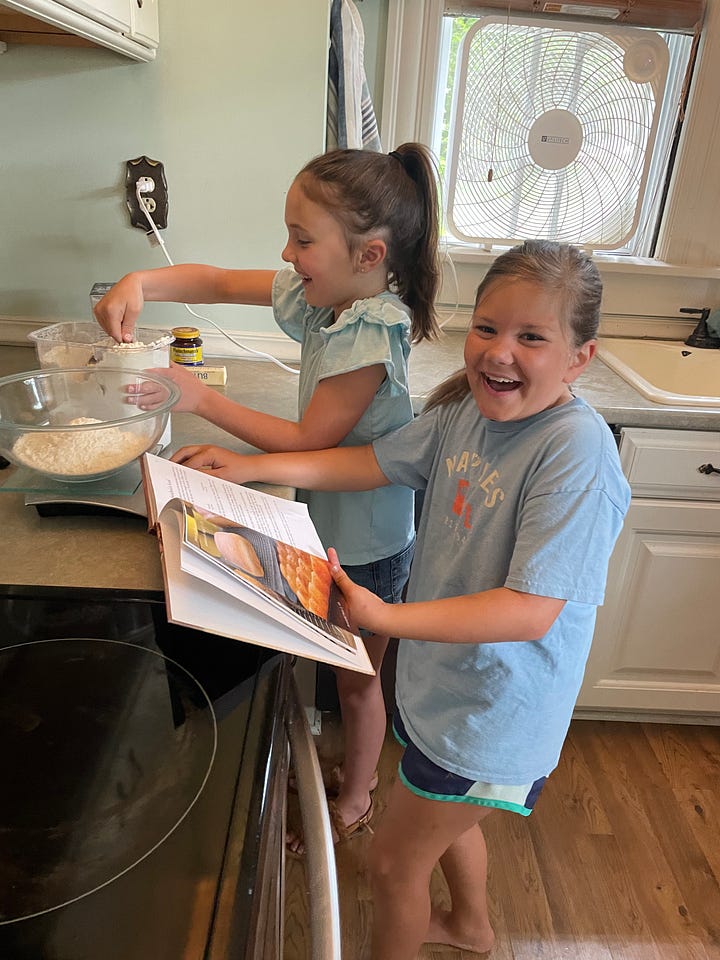
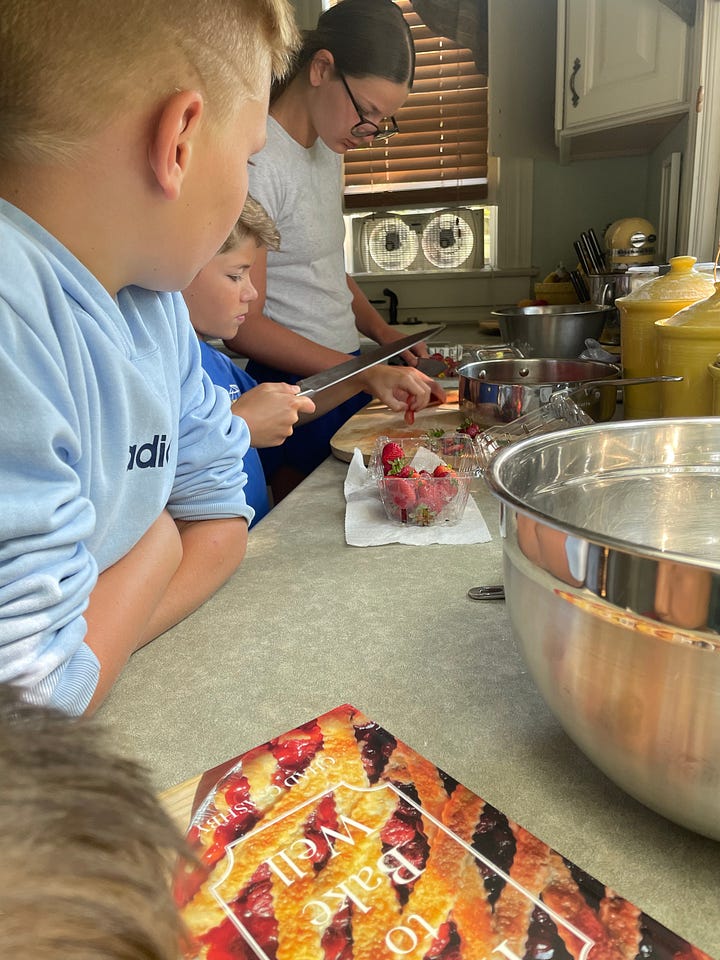



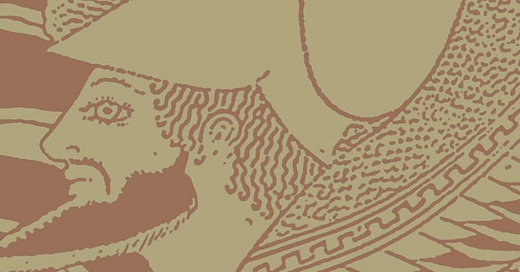






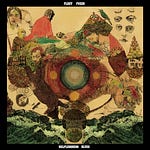
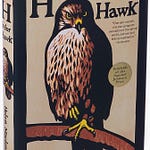

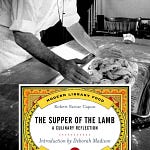

Share this post